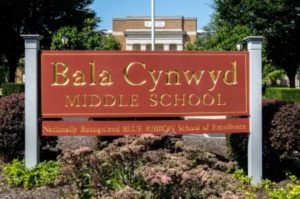Public school workers in PA claim ‘dignified’ retirement now out of reach
(The Center Square) – Pennsylvania educators say the “dignified” retirement promised to them decades ago no longer exists thanks to record inflation and benefits “frozen” in time for the…

(The Center Square) – Pennsylvania educators say the “dignified” retirement promised to them decades ago no longer exists thanks to record inflation and benefits “frozen” in time for the last 20 years.
Thomas Curry, a former art teacher who worked for the Punxsutawney Area School District for 40 years, said he’s watched his pension benefits cover less and less since he retired in 1999. He no longer buys Girl Scout cookies or supports charitable organizations in the neighborhood and his family clips coupons to afford groceries.
Other retirees must sacrifice medication or health care treatments just to make ends meet. And the legislature’s unwillingness to authorize a cost-of-living adjustment for them is the main driver behind this declining quality of life, Curry said.
“I’m somewhat saddened … I can put faces and names to some of the difficulties expressed,” he said. “I’m just one of those that lived longer than anybody could have expected.”
In his testimony before a joint hearing of the House and Senate Democratic Policy Committees, Curry said he’s grateful he’s lived long enough to be a voice for the other retirees living under these conditions.
“I’m fortunate enough to be in good health to speak for people,” he said.
The Pennsylvania State Education Association – which represents roughly 31,000 retired public school educators – said although costs for housing, health care and food have doubled, the average monthly pension benefit of $847 has been unchanged since 2002.
The Pennsylvania School Employees Retirement System represents 248,000 active members and 247,000 retired members, with net assets totaling $17.2 billion.
Between 1968 and 2002, the legislature approved COLAs every three or four years that kept up with inflation, said PSEA Vice President Aaron Chapin. This, combined with skyrocketing prices, low benefit multipliers and salaries that no longer keep up with inflation drive future educators away too, he said.
The $1.4 billion the system spends annually on fees and accrued interest to private money managers is a sum that could easily support cost of living adjustments for retirees, said Art Steinberg, president of the Pennsylvania chapter of the American Federation of Teachers.
“We did not get into teaching to get rich,” he said. “A lot of us just wanted to give back to our communities.”
“We knew that where was a sense of job security with this, which unfortunately due to the teacher shortage is still there,” Steinberg continued. “The rate of inflation since the last COLA has made many of our retirees’ living situations untenable.”
Steinberg urged the committees to approve a COLA for public retirees and tie future adjustments to the consumer price index.
Lawmakers salaries, for example climb at the rate of inflation. This year, elected officials in the House and Senate received a COLA in excess of 8%, boosting their salaries above six figures.
While lawmakers on the committee agreed COLAs for public retirees are long overdue, CPI strings proposed for other policies worry Republicans in the House and Senate, The Center Square previously reported.
Gov. Josh Shapiro, for example, wants to increase 911 fees and rental rebate programs in line with inflation rates – ideas that some lawmakers fear could create a $10 billion budget deficit and trigger massive tax increases.
The administration’s 2023-24 budget proposal anticipates spending $2.9 billion on public school retiree benefits.



